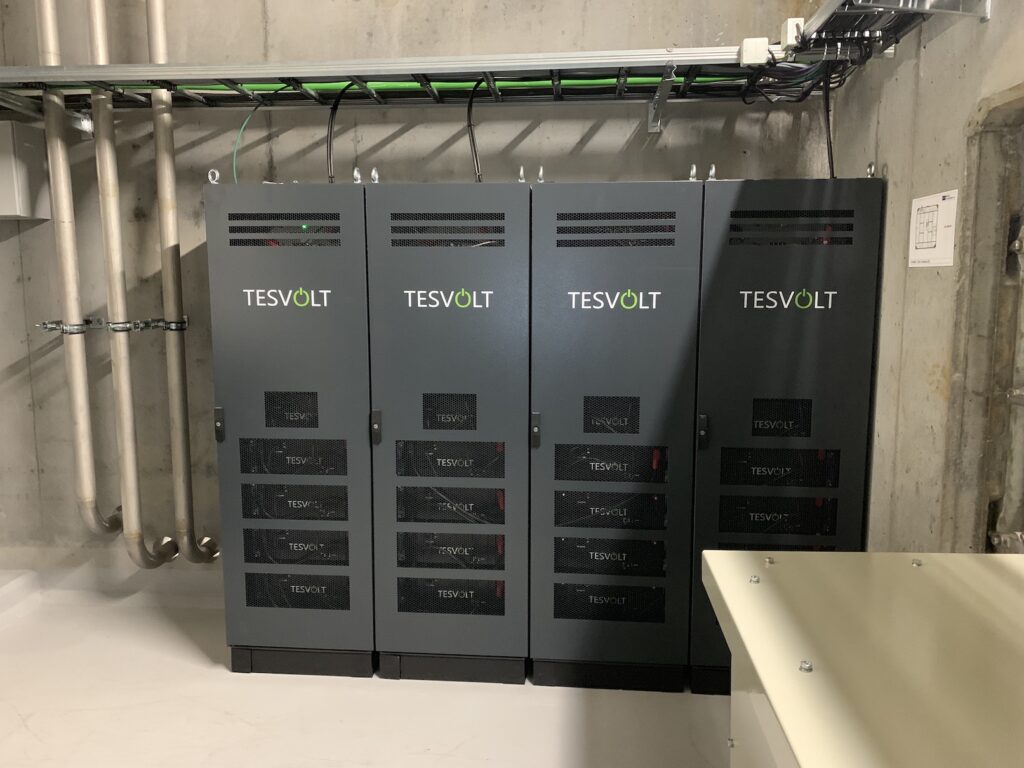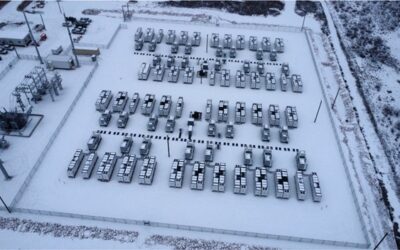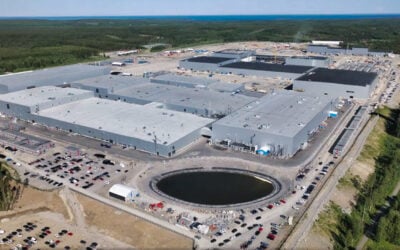
Energy storage technology company Tesvolt has concluded a funding round, raising around €40 million (US$45.25 million) in equity capital.
Germany-headquartered Tesvolt assembles energy storage systems (ESS) for a variety of commercial and industrial (C&I) markets, using third party-supplied prismatic nickel manganese cobalt (NMC) lithium-ion battery cells.
It has received orders worth close to €100 million for this year so far, the company claimed, and it opened a factory in Wittenberg, Germany, with 255MWh annual production capacity in April 2020.
Opening just a month into the COVID-19 pandemic, staff had to work in isolation from each other at the factory, which Tesvolt said could be scaled up to 1GWh annual production capacity in line with rising demand.
Try Premium for just $1
- Full premium access for the first month at only $1
- Converts to an annual rate after 30 days unless cancelled
- Cancel anytime during the trial period
Premium Benefits
- Expert industry analysis and interviews
- Digital access to PV Tech Power journal
- Exclusive event discounts
Or get the full Premium subscription right away
Or continue reading this article for free
It’s newest product, the TS-1 HV 80 energy storage system, launched in March, comes with an integrated 75kW three-phase inverter and is available from 76kWh up to multi-megawatt-hour configurations, capable of housing up to 340kW of batteries with a footprint of less than half a metre square.
Lead investor in the new funding round was the Liechtenstein Group — a group of companies owned by the Liechtenstein royal family. Tesvolt was supported by banks UBS and Berenberg, while also taking part were private investment and asset management group ER Capital Holdings and Tesvolt’s existing shareholder, IGB Funds, an investment fund owned by the German state of Saxony-Anhalt.
Tesvolt is involved in a project to bring online in October 2020 what was at the time Europe’s biggest EV charging park, supplying 2MWh of battery storage to enable the facility to charge cars with a combination of onsite solar and off-peak grid electricity.
The company said yesterday that another unnamed investor in the new funding round is a family office with an automotive background. The investor’s involvement gives Tesvolt a further avenue into the automotive space, particularly inductive EV charging, the company claimed. Tesvolt has itself invested into an inductive charging company, Stercom Power Solutions.
The funding round’s proceeds will be used to facilitate further international expansion and pursue a focus on innovative products. Tesvolt recently signed a deal to integrate battery energy storage systems (BESS) technology into green hydrogen electrolyser projects with energy supply systems company Schaper Group. Through that agreement, up to 40MWh of Tesvolt BESS will be combined with an electrolyser solution made by green hydrogen specialist Apex Group.





